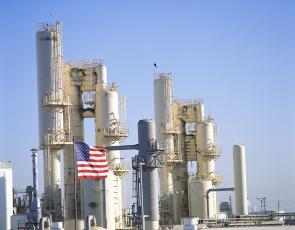Every day, AFPM members make products that improve our lives and contribute to human progress — including fuels like gasoline, diesel and jet fuel that facilitate access to vital health services, and petrochemicals used as building blocks to create healthcare equipment, devices and technologies. When manufacturing, shipping and selling these fuels and petrochemical products, AFPM members always focus on ensuring the safety of consumers, communities and the environment.
Products and Health
Fuels made by AFPM members make access to critical services possible. Our fuels enable medevacs by helicopter in dangerous and remote locations, the rapid delivery by plane of donated organs, and life-saving ambulance services to hospitals. When it comes to key petrochemicals, there are no direct consumer uses for certain AFPM members products. Indeed, manufacturers purchase petrochemicals and combine them with other ingredients to create resins, solvents, plastics and other materials that are transformed into other products for retailers, businesses and consumers. Petrochemical products contribute to hospital hygiene and play an important role in keeping us all safer and healthier. They are integral to the gloves and plastic equipment that keep operating rooms sterile and the packaging that protects food from contamination. It may come as a surprise that petrochemicals are found in more than 99 percent of pharmaceutical feedstocks. They can also be found in the computer systems providing doctors ready access to medical files and the 3D-printed model plastic hearts helping them plan intricate surgeries.
Safety
Safety is a core value of AFPM members. Supply chains are cemented in rigorous processes, protocols and precautions so that the production, handling, storage and transportation of fuels and petrochemicals are performed with the utmost safety to protect workers, communities and the environment. Their commitment to safety frequently means working closely with government officials, first responders, and citizens’ and community groups to share information, monitor facilities and surrounding areas for operational impacts, and continuously improve operations and plans. As AFPM members innovate to advance operations and products — and ultimately help make progress for people around the globe — we can look forward to a healthier, safer future for consumers, businesses and the environment.


